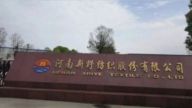【新唐人2014年04月11日訊】在國際貨幣基金組織與世界銀行和G20會議,本週在華盛頓召開之前,美國對急劇下跌的中國貨幣表示擔憂,警告北京不要重回操縱人民幣的老路。但是有分析認為,人民幣貶值是中國經濟下滑的結果。甚至有分析說,目前人民幣已經估值過高。外媒也指出,人民幣挑戰美元霸主地位的預測落空。
一名美國財政部高級官員日前說,「如果最近的人民幣疲軟,預示著中共背離『允許由市場決定匯率』的政策,這將引發嚴重擔憂。」
自從2月份以來,人民幣已經下跌2.5%,對於多年來緩慢而穩定上升的中國貨幣來說,這是一個急劇的轉變。
美國的言論凸顯了華盛頓擔憂中共面對放緩的經濟,將傾向於通過壓低貨幣來刺激出口。這樣的行動可能導致中國減少全球的市場需求,而此刻世界上幾個地區比如歐洲都處於經濟疲軟。這反過來可能阻礙美國增長。
但也有分析認為,人民幣俯衝而下是因為市場壓力。一系列廣泛的經濟指標——從貿易到消費支出到工業產出——都顯示放緩的中國經濟,減少了對人民幣的需求。
那麼人民幣下跌究竟是中共當局操縱的結果,還是中國經濟下滑的自然結果?
北京天則經濟研究所副所長馮興元認為,人民幣近期下跌有三個原因。第一是美國退出量化寬鬆,美元必然堅挺。第二,中國經濟增長放緩,外界對它不看好。
天則經濟研究所副所長馮興元:「對你中國經濟預期不大好的時候,包括中國的貨幣資本外逃會加強,他會傾向於到外頭去投資。很多人會去買美元。美元就往上走。美元再通過某種方式流出國內。相對而言,人民幣幣值會往下走。」
人民幣貶值的第三個因素是,長期以來人民幣增發,導致國內物價增長比較快。
馮興元:「如果長期的物價增長比較快的話,說明人民幣內部幣值穩定不行。內部幣值穩定體現在國內物價上。內部幣值不穩定、貶值的話,長遠影響到外部幣值不穩定。再長期的話,它會影響到人民幣匯率的貶值。」
至於,中共政府是不是操縱匯率﹖馮興元表示,在沒有明確證據的情況下,不能隨便評論。
而美國《華爾街日報》引述中共央行官員私下的說法﹕央行設計了最近的人民幣下滑,以阻撓短線投機者,並引入更大的雙向波動。
大陸經濟學者鞏勝利最近接受《新唐人》採訪時表示,在人民幣貶值初期,央行是為了阻擊投機者,但是到後來,則是因為市場看衰中國經濟而造成貶值。
英國《金融時報》4月8號報導,英國「郎伯德街研究所」估計,人民幣已經高於公平價值的15-25%。而估值過高已經損害了企業盈利,過去兩年企業盈利平平,在這個期間,企業債務相對GDP的比例已經飆升15個百分點。如果人民幣缺乏進一步的貶值,企業將很難在不削減投資,和削減員工及薪資的情況下,維持資產負債表的平衡。
《金融時報》的報導說,走低的中國貨幣可能被證明是一個觸發器,就像美國次級房貸觸發了全球金融危機那樣。
自從2010年以來,實際的和預期的人民幣升值,催生了一個套利遊戲。在外匯債務需要償還的時候,下跌的人民幣可能導致擠兌,推動資產價格下降。每次當局推出監管條例遏制套利,或最近當央行壓低人民幣的時候,市場流動性都承受壓力。
此外,許多在國外籌集的資金,已經通過理財產品流入中國企業貸款,其中一些將變成壞賬。大量的這類產品將在未來幾個月到期,考驗中國的金融系統,特別是如果北京不干預阻止違約發生的話。
就像美國的次貸危機一樣,中國金融問題的規模縈繞著不確定的陰雲。
《華爾街日報》4月8號報導說,人民幣作為儲存貨幣吸引力有限的原因是:中國金融系統太不穩了。更重要的是,美元的重要支柱是:透明的民主制度,政治制約和平衡,而這一切都是中共強烈抵制的。
採訪編輯/秦雪 後製/鍾元
U.S. Issues Warning to China on Economic Downturn and Devaluation of Renminbi (RMB)
A G20 meeting between the International
Monetary Fund (IMF) and the World Banks
will be held in Washington this week.
Prior to it taking place, the US has raised
concerns over the sharp drop in the RMB.
It warned the Beijing authorities not to
manipulate RMB as it has done before.
Some analysts believe that devaluation
is the result of China’s economic downturn.
Some suggest that the RMB has been overvalued.
Foreign media also point out the prediction of
challenges faced with the supremacy of the dollar.
A senior US Treasury official commented that, “if the recent
currency weakness signals a change in China’s policy away
from allowing adjustment and moving toward a market-
determined exchange rate, that would raise serious concerns.”
Since February this year, the RMB fell 2.5 percent.
This is a big change for the Chinese currency,
which has slowly but steadily risen over the years.
Remarks by the U.S. highlight Washington’s concern that
the Chinese Communist Party (CCP) will stimulate exports.
They will do this by depressing their currencies
in response to the economic slowdown.
Such action could reduce global market
demand from China to hamper US growth.
This is because several regions of the world,
such as Europe, are in a weak economy.
Some analysts believe the RMB floating
down is because of market pressure.
A series of wide economic data from trade, to consumption
expenditure, to industrial output, has shown a slowdown
in China’s economy, which has reduced RMB demand.
So what are the results of the RMB devaluation?
What will result from the Chinese authorities’ manipulation,
or the natural result of China’s economic downturn?
Feng Xingyuan, Deputy Director of the Beijing
Unirule Institute of Economics, believes there
are three reasons for the recent RMB devaluation.
The first is that the dollar will be inevitably strong,
because of the US quantitative easing withdrawal.
Second, overseas is not optimistic
on China’s economic slow growth.
Feng Xingyuan, Deputy Director, Unirule Institute
of Economics: “They will tend to invest out of China
if they don’t predict a good economy in China.
In addition, there has been an increase
in registered capital flowing out of China.
Many people buy dollars to make dollars up.
Dollars will go back to US in some
way and RMB will go down relatively.”
The third reason for RMB devaluation is the fast growth
of domestic prices, resulting from long-term RMB issuance.
Feng Xingyuan: “it indicated that the RMB internal currency
value is unstable if the price grows fast in the long term.
The internal currency value is reflected in the domestic price.
The unstable internal currency value will influence the
stability of the external currency value in the long-term
It will also influence the depreciation
of the RMB exchange rate further.”
Without clear evidence, it is not possible to comment
on whether the CCP government is manipulating
the exchange rate without clear evidence.
The Wall Street Journal has quoted
CCP central-bank official’s words.
Beijing considers the drop part of its effort to thwart
short-term speculators who see the yuan’s strengthening
as a sure bet but triggered greater two-way fluctuation.
China economist Gong Shengli recently spoke to NTD.
The early RMB devaluation is to thwart speculators
from the central bank; but the later devaluation is
because China’s economy is devalued by the market.
The Financial Times reported on April 8 that
Lombard Street Research estimates the RMB
is between 15 and 25 per cent above fair value.
Overvaluation has already hurt corporate
profits, which have been flat for two years.
Corporate debt as a share of GDP has surged
15 percentage points during that time.
This is while corporate deposits have hardly changed.
In the absence of further depreciation, it will be
hard for firms to keep taking a hit to their balance
sheets without slashing investment, jobs and wages.
China’s currency could turn out to be a
trigger, in the same way that US sub-prime
mortgages sparked a global financial crisis.
But the actual and expected rise in the RMB has
spawned an arbitrage game, since the middle of 2010.
A lower RMB could cause a scramble
for liquidity, pushing asset prices down.
This is when debts in foreign currency need to be repaid.
Every time the CCP has introduced regulations
to curb arbitrage – or more recently when the
People’s Bank of China pushed down the RMB
– market liquidity has come under pressure.
In addition, a lot of the money raised abroad
has been funneled via wealth management
products into Chinese corporate loans.
Some of these will turn sour.
A large number of such products
will mature in the next few months.
This will test the system, especially if Beijing does
not intervene to prevent defaults, as it did in January.
Much like sub-prime lending in the US, China’s
financial problems are clouded in uncertainty.
The Wall Street Journal reported that on
April 8, for precisely the reason that limits
the attractiveness of the yuan as a currency
haven: China’s financial system is too shaky.
Prasad points out America’s transparent system
of democracy, political checks and balances, and
the rule of law to which even the executive is subject.
These are all concepts that the current Chinese
administration, under President Xi Jinping, emphatically rejects.
Interview & Edit/Qin Xue Post-Production/Zhong Yuan































